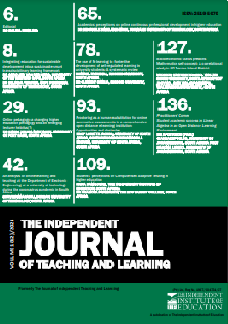Socio-economic status predicts mathematics self-concept: A correlational study in OR Tambo Inland District
DOI:
https://doi.org/10.17159/ijtl.v18i2.17324Keywords:
parent’s socio-economic status, mathematics self-concept, OR Tambo Inland DistrictAbstract
The current study explored the level to which socio-economic status predicts mathematics self-concept. A correlational and regression research designs were used. The study was carried out in OR Tambo Inland District in the Eastern Cape Province. The sample size comprised of 351 Grade 9 mathematics students, of which 171 were girls and 180 were boys. For generalizability purposes and fair distribution and representation of the sample across the population, both rural and urban geographical locations were represented by three schools each. The level of socio-economic status and mathematics self-concept was measured by use of a standardized questionnaire. The data collection tool was tested valid and reliable. Statistical Package for the Social Sciences (SPSS) was used to perform regression and correlation analysis. The research findings depict that mathematics self-concept was heavily influenced by socio-economic status of a parent. Furthermore, mathematics self-concept varied according to the socio-economic status and the variation was statistically significant. Recommendations were made to all implicated stakeholders to improvise strategies of improving mathematics self-concept despite the family’s economic hardships.







.png)